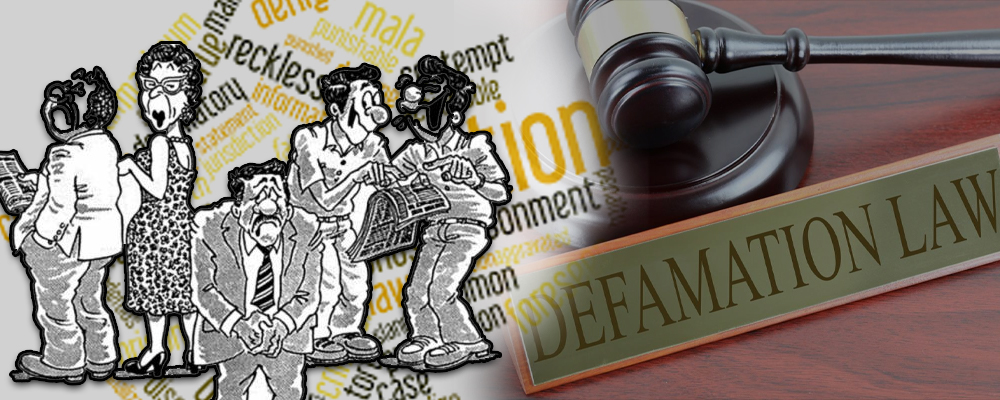Generally we can say that defamation means or it requires a false publication without the consent of the alleged defamed person there must be the loss of reputation, thus defamation is the publication of the statement which harms the reputation of the person which makes everyone shun or let the society avoid him.
Basically the Defamation is divided into two parts
- Libel :- The statement is passed by the means of writing, printing, picture or any other means
- Slander:- The defamatory statement passed through gestures or is spoken
Section 499 of the Indian Penal Code 1860 defines defamation which says!
Defamation is said to be committed when through the words, signs or any kind of act that communicates false statement about any person whose reputation is injured where observed by any other particular person, defamation is also said to be any false statement published with a intention to harm the reputation of other person, the reputation of the person is said to be property and for such damages there are punishment prescribed in law.
Article 19 of The Indian Constitution gives various kinds of freedom to the citizens but the article 19(2) has been provided with some exceptions that are reasonable to freedom to speech and expression and defamation is said to be one of the exceptions.
Defamation is wrong under both the Civil and Criminal law, under the civil law the defamation falls under law of tort, and under the provision of Criminal law defamation comes under the provision of Indian Penal Code, the Indian Penal Code provides the punishment for the offence of Defamation.
Under criminal defamation the intention to defame the person is merely necessary, there should be a malafide intention to defame the person.
Need A Legal Advice
The internet is not a lawyer and neither are you. Talk to a real lawyer about your legal issue

Civil Defamation:
Information provided must be false and may be done without the consent of the person against whom the defamation claim is made. Defendants may be required to pay monetary compensation for defamation. There are certain requirements for a defamation lawsuit to succeed. These are:
Requires the presence of defamatory statements. Defamatory content is content that may damage the reputation of an individual or group of individuals by invoking hatred, contempt, or ridicule. The test of whether it damages reputation must be calculated from the public eye and understanding of the problem. Generic statements such as “all politicians are corrupt” are too broad to allow any particular politician to compensate for this.
- Issue orally or in writing.
- There is no defamation if the content is not made accessible to third parties.
- If the letter is sent in a language the recipient does not know, the recipient will need a third party to read it.
- If it contains defamatory material, even if it is a personal letter, it is slanderous because it needs to be read with the help of a third party.
- If all of these conditions are met, a defamation action is established. Defendants
- hold that the testimony made public is true,
- fair comments made on the basis of true events in the public interest,
- have the privilege of giving testimony even if certain individuals are defamatory.
- You can rely on Court Proceedings and Members of Parliament, etc. If the defendant does not prove a crime, the case will succeed.
Nothing but defamation with a simple prison sentence. Criminal lawsuits require defamation. Complaints must be made in bad faith to defame another person. At the very least, it’s imperative that you know that your posts may slander others. You must prove beyond a reasonable doubt that the act was done to harm the reputation of another person.
Section 499 of the Indian Penal Code 1860 defines defamation and its exceptions. Words or characters that are intended to cause harm or are attributed with the knowledge that such attribution will cause harm. Defamation can exist if the deceased was accused of something. Groups of people include businesses or associations. Unless an alleged defamatory statement directly or indirectly undermines a person’s moral or intellectual character, caste respect, or the call to respect of others, it is not defamatory.
How can Lead India help?
Lead India will help you in filing the complaint against the person who defames you and also will ensure that complete justice is aided to you and you will be guided step by step for such.





 Talk to a Lawyer
Talk to a Lawyer